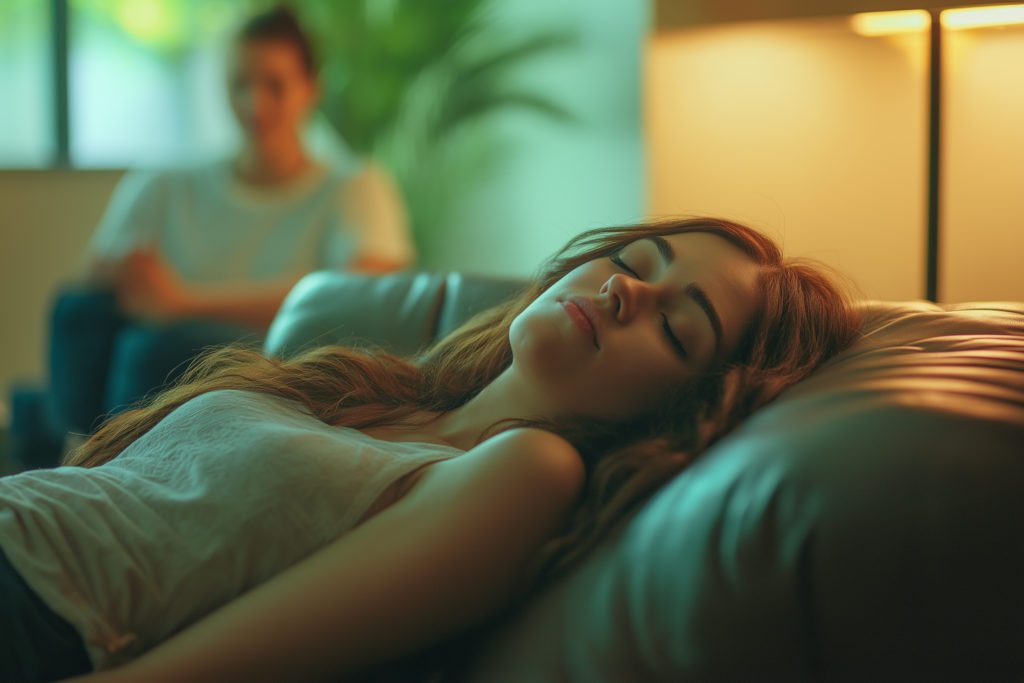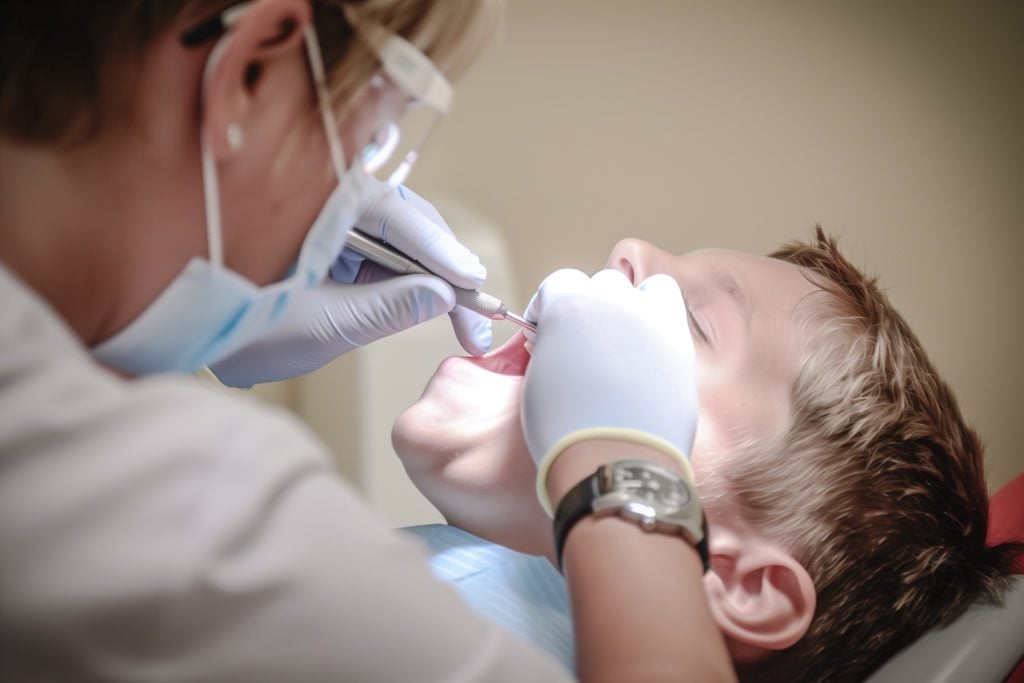
Lifestyle Interventions for Improving Sleep in Individuals with Bipolar Disorder
Bipolar disorder can affect your sleep, and poor sleep can cause bipolar symptoms to worsen and moods to shift. Explore how to improve sleep when you have BPD.

Bipolar disorder is a mental illness characterized by shifting moods that range from extreme highs (mania) to lows (depression). These shifting moods can also change your energy, behavior, thinking, and sleep.
While bipolar disorder can affect your sleep—sometimes causing you to get too little and other times too much—sleep can also cause bipolar symptoms to worsen or make a mood change more likely. Knowing this connection between bipolar disorder and sleep, getting the right amount of good sleep each night is a crucial component of bipolar disorder treatment.
How Does Bipolar Disorder Affect Your Sleep?
It is very common for those with bipolar disorder (BPD) to experience sleep disturbances.
Insomnia is a common accompaniment to many physical and mental health conditions, including BPD. This is because the hypomania and mania experienced with BPD can lead to difficulty falling asleep, staying asleep, or getting good quality sleep.
Delayed sleep phase syndrome is another sleep disorder that those with BPD may experience. It is characterized by a circadian rhythm disturbance that makes it hard to fall asleep at a normal bedtime.
Those with BPD also experience irregular sleep in general, especially if they have no set sleep routine. When they do sleep, vivid dreams, night terrors, and nightmares can be common, which can then make falling back asleep difficult, especially if there is a fear of getting sucked back into the frightening dream.
When you consider the states of BPD, it’s easy to see how your sleep can be affected; mania can make it hard to settle down to sleep, while the depressive state can make you wake up too early or spend most of the day sleeping. Either state can send you to an extreme, whereas your body is happiest when your sleep is in a happy middle ground.
How Does Sleep Influence BPD Symptoms?
Not only can BPD make sleep disturbances more common, but these disturbances appear to significantly affect the cycling of the disorder.
Not getting enough sleep is one thing that can precipitate manic and hypomanic episodes. Research has shown that 25% to 65% of those with BPD who had a manic episode had experienced a social rhythm disruption beforehand, which is a routine disturbance that affects your sleep/wake cycle, such as staying up late to watch a movie or being unable to sleep because of a stressful event.
Ultimately, the research suggests that those with BPD have a more delicate internal clock, which can be why these sleep disturbances can affect them so much.
Some scientists even speculate that sleep disorders may contribute to the incidence of BPD. They have found that BPD is becoming more prevalent in society, a rise that happens to coincide with the increasing use of bright artificial light. Artificial light has been shown to influence our sleep cycles and, specifically, make it harder to fall asleep at night. This may make it so that those who are genetically predisposed to BPD are more likely to develop the condition.
How to Improve Sleep When You Have BPD
Given the way that poor sleep can increase the severity of your BPD, managing your sleep and ensuring you get enough each night is crucial.
Those who have insomnia, in any form, can benefit from improving their sleep hygiene. Start by:
- Being consistent. Going to bed and waking up at the same time each day can help your body predict when it’s time to sleep. Take things a step further by being consistent with your bedtime routine, as well, including what you do and when you do it.
- Avoid naps. Naps can make it harder to fall asleep at night, especially if you nap for too long or late into the afternoon. If you need a nap, keep it to the early afternoon and limit it to 20 minutes or less.
- Avoid heavy meals before bed. You’ll sleep better when your body isn’t focusing so hard on digesting all the food it just received.
- Keep your bedroom for only bedroom activities. Use your bedroom only for sleep (and sex)—this helps your body know exactly what happens when you go in there. If you can’t limit your bedroom that much, at least keep your bed for only these activities.
- Get up. If you cannot fall asleep after a certain amount of time (e.g., 15 minutes), get out of bed and do something else. Tossing and turning won’t help your insomnia; remember, we want to associate your bed with sleep, not tossing and turning.
- Limit caffeine. A lack of sleep can leave you reaching for caffeine, but too much can affect your sleep, and if your BPD is making you restless, too much caffeine can make it worse. Stick with 400 mg or less of caffeine, and if you’re still struggling to sleep, it may be time to ditch the caffeine completely.
As for those who suffer from hypersomnia, or sleeping too much, it’s recommended to gradually reduce the amount of time you spend asleep. Use an alarm clock to help you wake up and bump your wake-up time forward by 10-15 minutes every few days. The key is to shift gradually; otherwise, you risk disrupting your circadian rhythm further.
Those with bipolar disorder may also take medication to manage their mental illness, but if you’re experiencing challenges with sleep despite implementing the above lifestyle interventions, it may be worthwhile to ask your doctor if your medication can affect your sleep and what you can do to remedy it. Don’t discontinue your medication without your doctor’s guidance, though, even if you think it is affecting your sleep.
Using Sleep to Manage Bipolar Disorder
It may seem simple to manage your BPD through a consistent sleep routine, but the reality is often more challenging than we expect. It can be hard to get our bodies onto a schedule that offers the ideal amount of sleep—not too much or too little. This is especially true if you have difficulty falling asleep; you either risk waking up at your normal time and being sleep-deprived or sleeping in later, further disrupting your circadian rhythm.
When it comes to fixing your sleep, it’s important to take gradual steps and be kind to yourself if things are hard at first or don’t work out the way you want. Simply keep trying—the more consistent you are with your sleep routine, the easier sleep will be, and the better quality.
Remember that correcting your sleep can be a big commitment—you may have to forego late-night activities or give up solitary time that you used to look forward to. Ultimately, though, it will all be worth it when your BPD is better managed, and you don’t have to worry as much about dramatic mood swings.
FAQ
Are there specific sleep disorders associated with bipolar disorder?
Yes, individuals with bipolar disorder are prone to insomnia, delayed sleep phase syndrome, and irregular sleep-wake cycles. These issues can make mood regulation harder, increasing the risk of manic or depressive episodes. Addressing sleep disorders is key to effective symptom management.
Is there a link between seasonal changes and bipolar symptoms?
Yes, seasonal shifts affect sleep and mood. Reduced sunlight in winter may trigger depressive episodes, while longer daylight hours in summer can lead to mania. Light therapy, vitamin D supplements, and maintaining a stable sleep routine can help manage these seasonal mood fluctuations.
What role does melatonin play in managing sleep issues in bipolar disorder?
Melatonin helps regulate sleep, but its use in bipolar disorder is complex. While it may aid sleep, it can also disrupt circadian rhythms and trigger mood episodes in some individuals. A healthcare provider should monitor melatonin use to ensure it supports, rather than worsens, sleep patterns.
How does mania affect sleep patterns?
Mania often reduces the need for sleep, causing individuals to feel energized despite little rest. This sleep loss can worsen manic symptoms, leading to impulsivity, poor judgment, and prolonged episodes. Sleep deprivation also increases the risk of mood cycling and requires careful management.
Can napping during the day affect sleep quality in bipolar disorder?
Yes, excessive daytime napping can disrupt nighttime sleep patterns, worsening insomnia and increasing mood instability. Short power naps (20-30 minutes) earlier in the day may be beneficial, but long or late naps can interfere with maintaining a regular sleep-wake cycle.
How does sleep medication impact bipolar disorder?
Sleep medications like sedatives or benzodiazepines can help with short-term sleep issues but may cause dependence or worsen mood symptoms over time. Some medications can trigger mania in bipolar disorder, so any sleep aid should be used under close medical supervision.
Does exercise influence sleep quality in bipolar disorder?
Yes, regular physical activity can improve sleep and mood stability. Moderate exercise earlier in the day helps regulate circadian rhythms and reduces anxiety. However, intense workouts too close to bedtime may overstimulate the body, making it harder to fall asleep.

Written by
Jessica G
Medical writer freelancer who has written hundreds of articles on varying topics. Masters of Engineering degree in Biomedical Engineering.
Download Pillow
Get help
Press & News
Legal
Connect
X (Twitter)
Company
Copyright © Neybox Digital Ltd.



